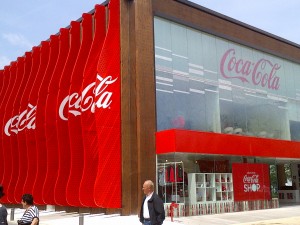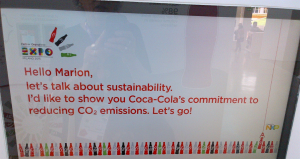Food Navigator’s Special Edition on Sports and Fitness
FoodNavigator.com collects its recent articles about sports and fitness into a Special Edition: Sports & fitness: From niche to mainstream:
Devices enabling us to track our diet, sleep, food intake and exercise regime – coupled with a new breed of personalized nutrition apps – are giving regular consumers access to tools and data that have historically remained the preserve of elite athletes and fitness freaks.
But is this creating new opportunities for food and beverage companies? Has the audience for sports nutrition products (bars, powders, beverages, gels, shots and supplements) evolved? And as ordinary mortals and weekend warriors start to engage with the category, are their needs the same as those of the hardcore sports nutrition audience?
- Competition heats up in large and still growing sports drink category: Hoping to cash in on the steady growth of the already sizeable sports and energy drink category, manufacturers at Natural Products Expo West in March will showcase a variety of functional beverages featuring an ever-expanding variety of plant-based proteins, natural sweeteners designed to help cut calories and sugar and other endurance-boosting ingredients… Display
- NOOMA finds white space in the sports drink category: ‘People want something that will rehydrate them without the added sugar and ingredients they can’t pronounce’: Would a professional athlete drink this? The founders of NOOMA – one of a new wave of sports drinks boasting cleaner labels and less sugar – can reliably answer in the affirmative, as both Jarred and Brandon Smith played hockey for a living, and formulated their own drink, because they were not happy with the sugary, lurid-hued electrolyte beverages they were chugging down to stay hydrated… Read
- Athletes and fitness community increasingly embracing personalization: The link between personalization and athletes of all levels will become stronger as scientific advances “cut through the noise and show results that are objective”, says the CEO of InsideTracker… Read
- Protes unveils protein popcorn: ‘We’re the first ones to bring function to the category’: The ready-to-eat popcorn category has been pretty lively in recent years, but all the innovation has all been driven by branding and flavor, rather than functionality, claims Brooklyn-based brand Protes, which is looking to bring incremental growth to the category with the launch of popcorn with 10g protein/serving… Read
- ‘Sarcopenia is the new osteoporosis’: Abbott continues to explore solutions to counter muscle loss: Awareness and concern around age-related muscle loss is rapidly increasing, but many older consumers are in need of better education around what their protein needs are, and how best to get there, says Abbott… Read
- Lenny & Larry’s: We didn’t set out to create a category, but that’s what happened: With its distinctive brand and commitment to high protein, Lenny & Larry’s has carved out a loyal following and success across multiple retail channels, so what’s next for the company?.. Read
- Adaptogens, CBD and nootropics rise as consumers consider their emotional & mental well-being: More products boasting the energy-managing, cognitive-enhancing and mood-moderating effects of adaptogens, CBD and nootropics will break out in 2018 as consumers continue to seek holistic and preventive ways to manage their mental health, according to trend spotters with SPINS… Read










